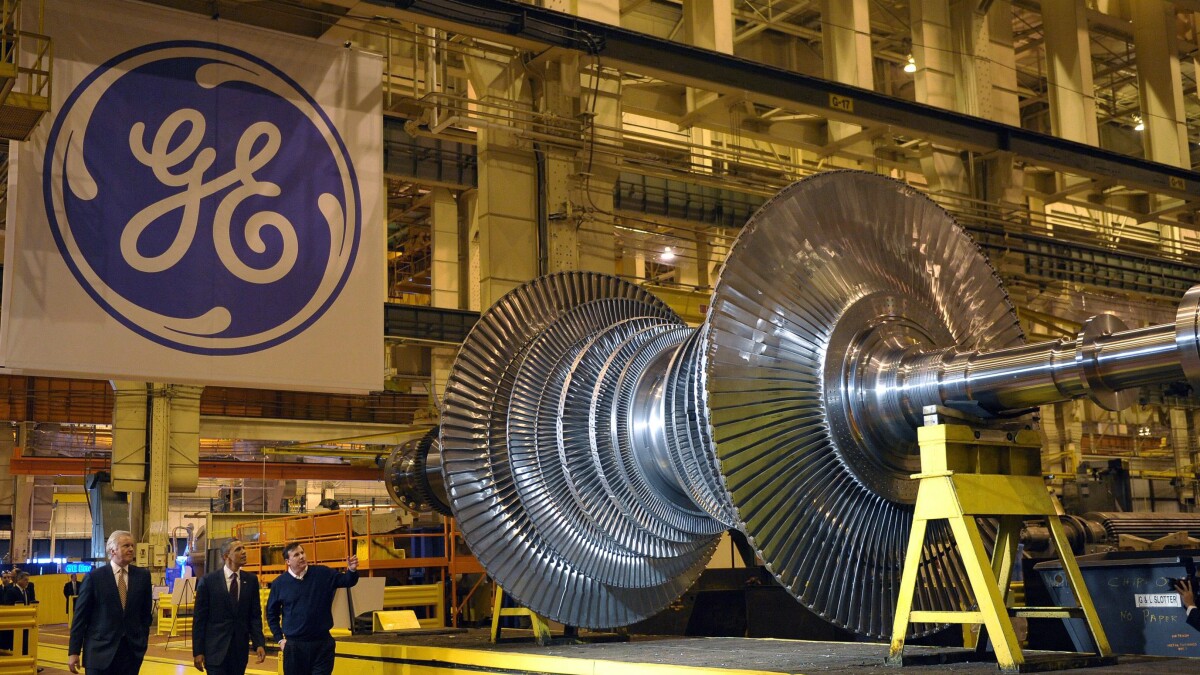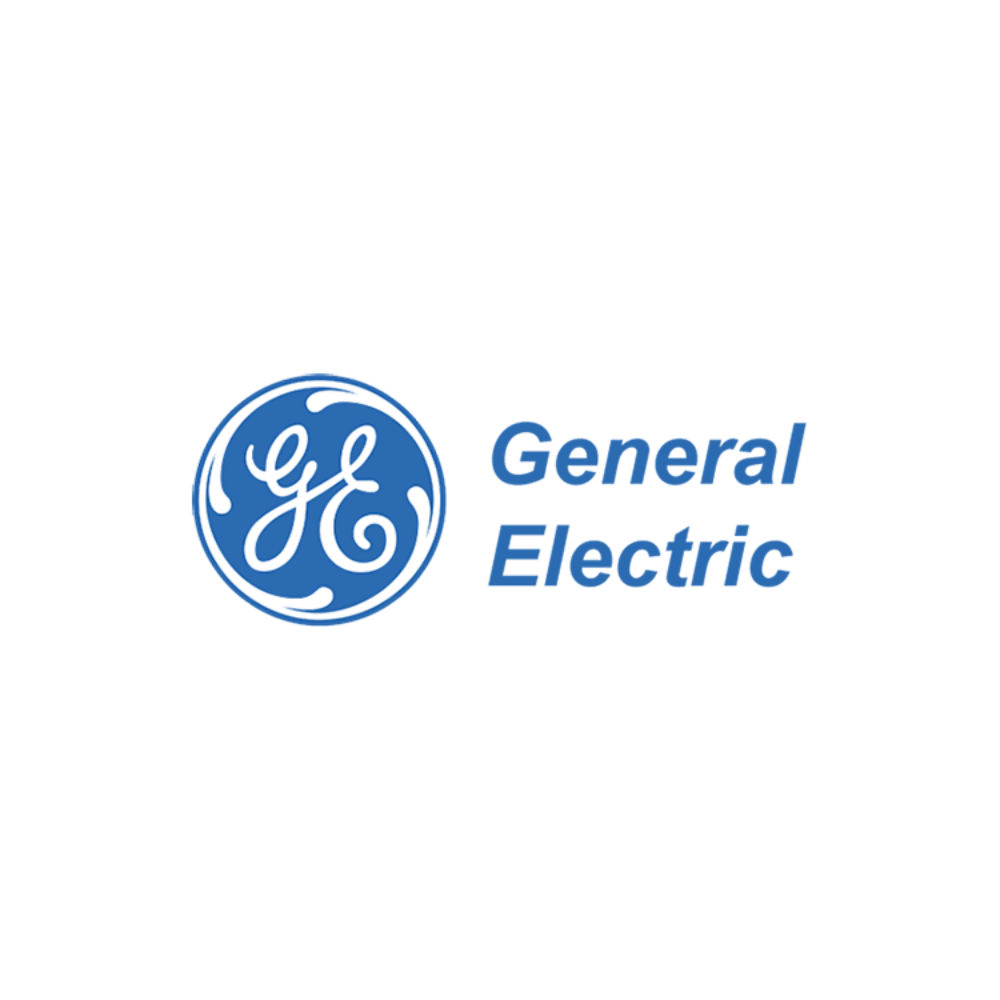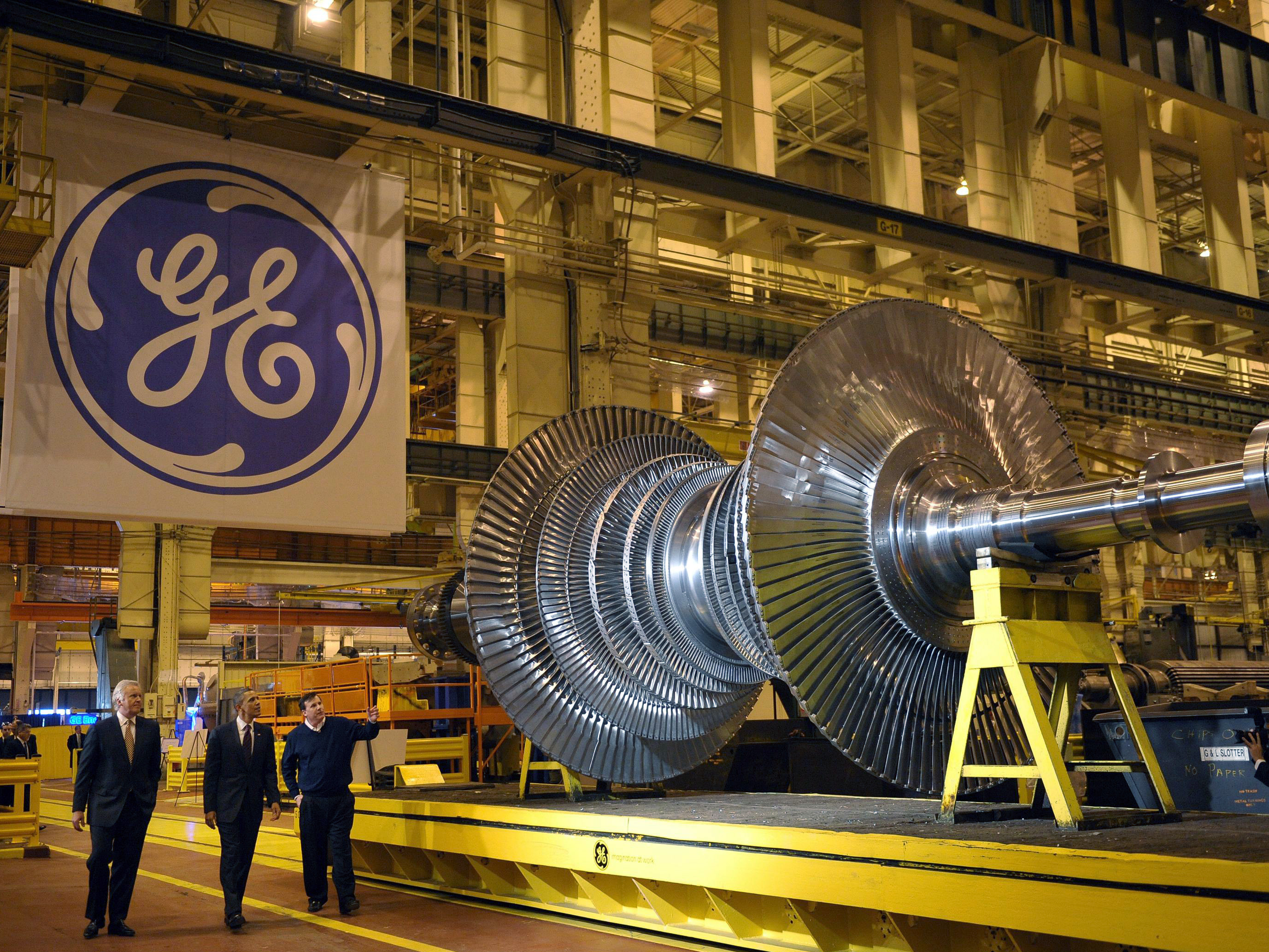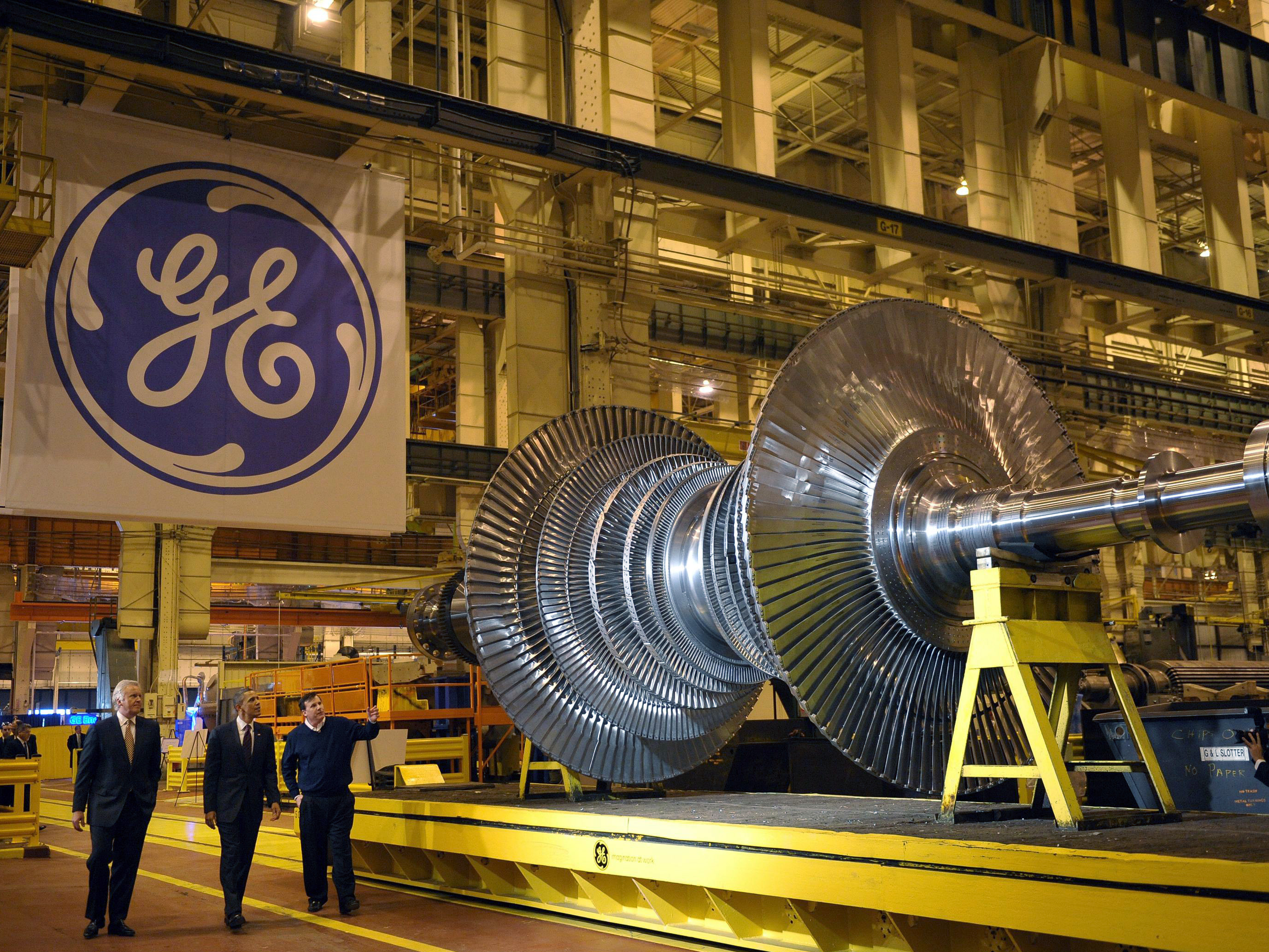GE Aerospace's Promising Outlook Post-General Electric Split

GE Aerospace Shines Post-Split from General Electric
GE Aerospace, a division that has recently become independent from General Electric (GE:NYSE) following a strategic split, is stepping into the spotlight with its first quarterly results as a standalone entity. This move comes on the heels of a remarkable nearly 40% surge in GE's stock price leading up to the separation, with the trend continuing upward. The focus is now on GE Aerospace's commercial aftermarket sales, a segment that has emerged as a pivotal component of its business model. This anticipation is backed by FactSet analysts' projections, expecting GE Aerospace to unveil adjusted earnings of 65 cents per share on revenue of $15.25 billion, marking a significant improvement from the previous year's figures.
The optimism surrounding GE Aerospace is further bolstered by TD Cowen's upgrade of GE stock to a buy rating from hold, driven by the promising outlook of the company's commercial aftermarket prospects. This positive sentiment is partly due to the production challenges faced by Boeing, which are anticipated to indirectly benefit GE Aerospace. Given that over half of GE Aerospace's sales and three-quarters of its profits stem from the commercial aerospace aftermarket, the sector's dynamics play a crucial role in shaping the company's financial health. TD Cowen's adjustment of GE's price target to $180 from $175 reflects confidence in the near-term advantages arising from Boeing 737 Max's production hurdles.
Looking ahead, GE Aerospace has laid out ambitious goals, aiming for low double-digit revenue growth in 2024, with an operating profit target of up to $6.25 billion and more than $5 billion in free cash flow. The trajectory extends into 2025 and beyond, with the company setting sights on maintaining low double-digit sales growth and achieving an operating profit of approximately $7.3 billion by 2025, and a lofty $10 billion by 2028. These targets underscore GE Aerospace's commitment to not only expanding its market presence but also enhancing shareholder value through dividends and share buybacks, planning to return about 70%-75% of its cash to shareholders.
The financial landscape of GE, as detailed by its market valuation metrics, paints a picture of a company with a balanced valuation and a solid financial structure. With a price-to-earnings (P/E) ratio of approximately 14.75 and a price-to-sales (P/S) ratio of about 2.42, GE presents itself as an attractive investment option for those seeking reasonable earnings potential. The enterprise value (EV) to sales ratio of roughly 2.50 further indicates a moderate market valuation of the company's sales relative to its enterprise value. However, the EV to operating cash flow ratio of approximately 32.86 suggests that the market may be pricing GE's operating cash flow at a premium, possibly in anticipation of future growth or improvements in operational efficiency.
In conclusion, GE Aerospace's emergence as a standalone entity in the aerospace sector, coupled with its ambitious growth targets and the financial health of GE as a whole, presents a compelling narrative for investors. The company's strategic focus on the commercial aftermarket, alongside its robust financial metrics, positions GE Aerospace for potential success in the competitive aerospace industry.
| Symbol | Price | %chg |
|---|---|---|
| RTX.BA | 52200 | -0.43 |
| LMT.BA | 35480 | -1.07 |
| 329180.KS | 528000 | -7.39 |
| 012450.KS | 950000 | -6.32 |

General Electric (NYSE:GE) Surpasses Earnings Expectations with Strong Aerospace Performance
- General Electric's [NYSE:GE] earnings per share (EPS) of $1.66 exceeded the estimated $1.46, showcasing robust operational efficiency.
- Revenue reached approximately $11.3 billion, surpassing expectations due to strong sales in the commercial-engines business.
- GE raised its full-year guidance, reflecting confidence in future performance driven by high demand for aerospace products.
General Electric (NYSE:GE) is a multinational conglomerate known for its diverse range of products and services, including aviation, healthcare, and renewable energy. GE Aerospace, a key division, focuses on manufacturing jet engines and other aerospace components. The company competes with other major players like Rolls-Royce and Pratt & Whitney in the aerospace industry.
On October 21, 2025, GE reported earnings per share (EPS) of $1.66, surpassing the estimated $1.46. This impressive performance was highlighted by Zacks, which noted the EPS exceeded their consensus estimate and marked a significant increase from the $1.15 per share reported in the same quarter last year. The strong earnings reflect GE's robust operational efficiency and market demand.
GE also achieved a revenue of approximately $11.3 billion, exceeding the estimated $10.4 billion. As highlighted by MarketWatch, this revenue surge was driven by strong sales and deliveries in its commercial-engines business. The increased demand for commercial engines and defense products contributed to the company's positive financial results.
Following the earnings report, GE's stock soared to record highs, as noted by Invezz. The company raised its full-year guidance for the second consecutive quarter, reflecting confidence in its future performance. This optimistic outlook is supported by the rising demand for GE's aerospace products, which continues to drive growth.
GE's financial metrics reveal a price-to-earnings (P/E) ratio of approximately 41.20, indicating investor confidence in the company's earnings potential. The price-to-sales ratio stands at about 7.48, while the enterprise value to sales ratio is around 7.24. GE's debt-to-equity ratio is relatively low at 0.11, suggesting a conservative approach to debt. The current ratio of 1.05 indicates a stable liquidity position, ensuring the company can meet its short-term obligations.

General Electric (NYSE:GE) Earnings Preview: What to Expect
- Earnings per share (EPS) of $1.46 and revenue of approximately $10.4 billion are expected for GE Aerospace's quarterly earnings.
- Historical data shows a 60% chance of a one-day gain in GE's stock following earnings announcements.
- GE's financial health is indicated by a P/E ratio of 41.29 and a debt-to-equity ratio of 0.99, suggesting investor confidence and a balanced financial position.
General Electric (NYSE:GE) is a multinational conglomerate known for its diverse operations, including aviation, healthcare, and power. GE Aerospace, a key division, is preparing to release its quarterly earnings on October 21, 2025. Analysts expect earnings per share (EPS) of $1.46 and revenue of approximately $10.4 billion, reflecting a positive outlook for the company.
Historically, GE's stock has reacted positively to earnings announcements, with a 60% chance of a one-day gain. The median positive movement is 5.1%, with the highest single-day gain reaching 8.3%. This trend suggests that traders might anticipate a favorable stock response if GE meets or exceeds expectations.
The consensus forecast for GE Aerospace's earnings report anticipates a 27% increase in EPS from the previous year, rising from $1.15 to $1.46. Revenue is expected to grow by 15.6%, from $8.94 billion to $10.34 billion. This growth is driven by strong demand for engines and solid defense orders, as highlighted by Zacks.
GE has consistently delivered better-than-expected results, with an average earnings surprise of 16.1% over the past four quarters. The company's Earnings ESP of 2.01% and a Zacks Rank of 3 suggest a high likelihood of another earnings beat. This could positively impact the stock price if actual earnings surpass expectations.
GE's financial metrics, such as a P/E ratio of 41.29 and a price-to-sales ratio of 7.65, indicate investor confidence in the company's earnings and sales potential. The debt-to-equity ratio of 0.99 and a current ratio of 1.04 suggest a balanced financial position, supporting GE's ability to meet its obligations and invest in growth opportunities.

General Electric's (GE) Impressive Financial Performance in Aerospace
- General Electric (NYSE:GE) reported earnings per share (EPS) of $1.49, surpassing estimates.
- GE Aerospace's revenue reached $9.94 billion, with a significant year-over-year decline but a notable EPS increase.
- The company reaffirmed its full-year guidance, projecting an adjusted EPS between $5.10 and $5.45.
General Electric (NYSE:GE) is a leading global company known for its diverse operations in sectors such as aviation, healthcare, and power. GE Aerospace, a key division, specializes in aviation and aerospace technologies, designing and manufacturing jet engines for commercial and military aircraft. The company competes with other major aerospace firms like Rolls-Royce and Pratt & Whitney.
On April 22, 2025, GE reported impressive financial results, with earnings per share (EPS) of $1.49, surpassing the estimated $1.27. This strong performance is attributed to GE Aerospace's robust commercial segments, despite ongoing supply chain challenges. The company's strategic initiatives to enhance product offerings and operational capabilities have played a crucial role in achieving these results.
GE Aerospace reported a revenue of $9.94 billion, exceeding the estimated $9.05 billion. Although there was a significant year-over-year revenue decline of 40.8%, the company managed to achieve an EPS of $1.49, a notable increase from the previous year's $0.82. This performance exceeded the Zacks Consensus Estimate, resulting in a revenue surprise of +0.31% and an EPS surprise of +18.25%.
Following the release of these results, GE Aerospace's shares saw an uptick in premarket trading. The company reaffirmed its full-year guidance, projecting adjusted EPS between $5.10 and $5.45. CEO Larry Culp emphasized strategic actions to control costs and utilize trade programs, with a commercial services backlog exceeding $140 billion, reinforcing confidence in maintaining the full-year guidance.
GE's financial metrics provide further insights into its market position. The company has a price-to-earnings (P/E) ratio of approximately 29.52, indicating investor confidence. Its price-to-sales ratio is about 5.12, and the enterprise value to sales ratio is around 4.86. With a low debt-to-equity ratio of 0.11, GE demonstrates a conservative use of debt, ensuring financial stability.

General Electric's (GE) Impressive Financial Performance in Aerospace
- General Electric (NYSE:GE) reported earnings per share (EPS) of $1.49, surpassing estimates.
- GE Aerospace's revenue reached $9.94 billion, with a significant year-over-year decline but a notable EPS increase.
- The company reaffirmed its full-year guidance, projecting an adjusted EPS between $5.10 and $5.45.
General Electric (NYSE:GE) is a leading global company known for its diverse operations in sectors such as aviation, healthcare, and power. GE Aerospace, a key division, specializes in aviation and aerospace technologies, designing and manufacturing jet engines for commercial and military aircraft. The company competes with other major aerospace firms like Rolls-Royce and Pratt & Whitney.
On April 22, 2025, GE reported impressive financial results, with earnings per share (EPS) of $1.49, surpassing the estimated $1.27. This strong performance is attributed to GE Aerospace's robust commercial segments, despite ongoing supply chain challenges. The company's strategic initiatives to enhance product offerings and operational capabilities have played a crucial role in achieving these results.
GE Aerospace reported a revenue of $9.94 billion, exceeding the estimated $9.05 billion. Although there was a significant year-over-year revenue decline of 40.8%, the company managed to achieve an EPS of $1.49, a notable increase from the previous year's $0.82. This performance exceeded the Zacks Consensus Estimate, resulting in a revenue surprise of +0.31% and an EPS surprise of +18.25%.
Following the release of these results, GE Aerospace's shares saw an uptick in premarket trading. The company reaffirmed its full-year guidance, projecting adjusted EPS between $5.10 and $5.45. CEO Larry Culp emphasized strategic actions to control costs and utilize trade programs, with a commercial services backlog exceeding $140 billion, reinforcing confidence in maintaining the full-year guidance.
GE's financial metrics provide further insights into its market position. The company has a price-to-earnings (P/E) ratio of approximately 29.52, indicating investor confidence. Its price-to-sales ratio is about 5.12, and the enterprise value to sales ratio is around 4.86. With a low debt-to-equity ratio of 0.11, GE demonstrates a conservative use of debt, ensuring financial stability.

General Electric (NYSE:GE) Maintains Strong Position in Aerospace with Bernstein's "Outperform" Rating
- Bernstein raises the price target for General Electric (NYSE:GE) Aerospace from $232 to $250, highlighting the division's recent achievements and technological prowess.
- GE Aerospace secures a significant contract with Korean Air for GEnx and GE9X engines, reinforcing its market position and showcasing its engineering excellence.
- Despite a slight decrease in stock price, GE's market presence remains dynamic, with a current trading price of $205.88 and a market capitalization of around $220.97 billion.
General Electric (NYSE:GE) is a multinational conglomerate known for its diverse operations, including aviation, healthcare, and power. GE Aerospace, a key division, focuses on manufacturing jet engines and providing related services. The company competes with other aerospace giants like Rolls-Royce and Pratt & Whitney. Recently, Bernstein maintained an "Outperform" rating for GE, with the stock priced at $205.88.
Bernstein's decision to raise the price target for GE Aerospace from $232 to $250 is supported by the division's recent achievements. GE Aerospace secured a major contract with Korean Air to supply GEnx and GE9X engines for their Boeing 787-10 and 777-9 aircraft. This deal strengthens GE's position in the aerospace market and highlights its technological prowess.
The GEnx engine family, with over 62 million flight hours, is a testament to GE's engineering excellence. With more than 3,600 engines in service or on backlog, the GEnx engine powers two-thirds of all Boeing 787 aircraft. The GE9X engine, chosen by Korean Air, offers a 10% improvement in fuel efficiency over its predecessor, enhancing the airline's operational efficiency.
Korean Air's decision to select GE Aerospace engines underscores the strong partnership between the two companies. The order includes a service agreement for maintenance, repair, and overhaul of the GE9X engines, marking a first in South Korea. This collaboration aligns with Korean Air's vision of fleet expansion and excellence, as highlighted by Walter Cho, Chairman and CEO of Korean Air.
Despite the positive developments, GE's stock price has seen a slight decrease of $1.49, or approximately -0.72%, currently trading at $205.88. The stock has fluctuated between $202.80 and $207.69 today, with a market capitalization of around $220.97 billion. Over the past year, GE's stock has ranged from a low of $133.99 to a high of $214.21, reflecting its dynamic market presence.

General Electric (NYSE:GE) Maintains Strong Position in Aerospace with Bernstein's "Outperform" Rating
- Bernstein raises the price target for General Electric (NYSE:GE) Aerospace from $232 to $250, highlighting the division's recent achievements and technological prowess.
- GE Aerospace secures a significant contract with Korean Air for GEnx and GE9X engines, reinforcing its market position and showcasing its engineering excellence.
- Despite a slight decrease in stock price, GE's market presence remains dynamic, with a current trading price of $205.88 and a market capitalization of around $220.97 billion.
General Electric (NYSE:GE) is a multinational conglomerate known for its diverse operations, including aviation, healthcare, and power. GE Aerospace, a key division, focuses on manufacturing jet engines and providing related services. The company competes with other aerospace giants like Rolls-Royce and Pratt & Whitney. Recently, Bernstein maintained an "Outperform" rating for GE, with the stock priced at $205.88.
Bernstein's decision to raise the price target for GE Aerospace from $232 to $250 is supported by the division's recent achievements. GE Aerospace secured a major contract with Korean Air to supply GEnx and GE9X engines for their Boeing 787-10 and 777-9 aircraft. This deal strengthens GE's position in the aerospace market and highlights its technological prowess.
The GEnx engine family, with over 62 million flight hours, is a testament to GE's engineering excellence. With more than 3,600 engines in service or on backlog, the GEnx engine powers two-thirds of all Boeing 787 aircraft. The GE9X engine, chosen by Korean Air, offers a 10% improvement in fuel efficiency over its predecessor, enhancing the airline's operational efficiency.
Korean Air's decision to select GE Aerospace engines underscores the strong partnership between the two companies. The order includes a service agreement for maintenance, repair, and overhaul of the GE9X engines, marking a first in South Korea. This collaboration aligns with Korean Air's vision of fleet expansion and excellence, as highlighted by Walter Cho, Chairman and CEO of Korean Air.
Despite the positive developments, GE's stock price has seen a slight decrease of $1.49, or approximately -0.72%, currently trading at $205.88. The stock has fluctuated between $202.80 and $207.69 today, with a market capitalization of around $220.97 billion. Over the past year, GE's stock has ranged from a low of $133.99 to a high of $214.21, reflecting its dynamic market presence.

General Electric (NYSE:GE) Maintains Strong Position in Aerospace with UBS "Buy" Rating
- UBS maintains a "Buy" rating for General Electric (NYSE:GE), increasing the price target for GE Aerospace from $215 to $235.
- GE Aerospace shares experience a breakout from a flag pattern, indicating a potential continuation of the upward trend with a projected price target of $335.
- The company anticipates low-double-digit adjusted revenue growth for 2025, driven by strong demand across its key divisions.
General Electric (NYSE:GE) is a multinational conglomerate known for its diverse range of products and services, including aviation, power, renewable energy, and healthcare. GE Aerospace, a key division, focuses on commercial engines, services, defense, and propulsion units. The company competes with other aerospace giants like Boeing and Rolls-Royce.
On January 24, 2025, UBS maintained its "Buy" rating for GE, with the stock priced at $200.80. UBS also increased the price target for GE Aerospace from $215 to $235. This decision aligns with the recent surge in GE Aerospace shares, driven by impressive fourth-quarter results and a positive revenue outlook.
GE Aerospace shares recently broke out from a flag pattern, a technical chart formation indicating a continuation of the upward trend. Analysts project a price target of approximately $335, suggesting the current uptrend may persist until December. Investors should monitor key support levels around $170 and $150.
The company anticipates low-double-digit adjusted revenue growth for 2025, following a 10% increase last year. This growth is attributed to strong demand in its commercial engines, services, defense, and propulsion units. GE Aerospace shares rose by 6.6% due to these developments.
Currently, GE's stock is priced at $200.80, reflecting a 6.60% increase or $12.44. The stock has fluctuated between $198.10 and $207.65 today, with $207.65 marking its highest price over the past year. GE's market capitalization stands at approximately $217.32 billion, with a trading volume of 14,328,980 shares.







